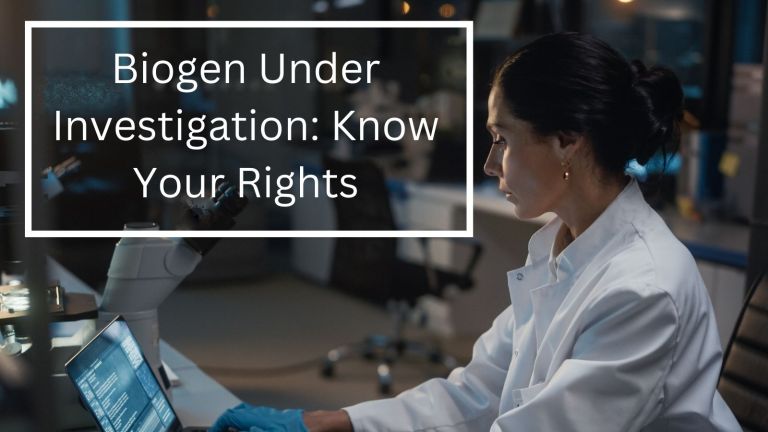Violations of the Foreign Corrupt Practices Act (FCPA) can have serious consequences and steep fines. The U.S. Securities and Exchange Commission (SEC) investigates corporate crimes and is most interested in leads regarding bribery and corruption– both of which fall under the FCPA. Preventing FCPA violations ensures your business runs smoothly without the risk of interruption from a lengthy and costly FCPA investigation. Moreover, you want to protect and maintain the integrity of your business practices and avoid mistakes that could put your reputation at risk. Internal reporting and corporate compliance programs are vital to preventing FCPA violations.
What Is the FCPA?
The Foreign Corrupt Practices Act was enacted in 1977 and addresses payments to foreign government officials for the purpose of obtaining or maintaining business. The FCPA prohibits providing anything of value– technology, jobs, equipment, money, stock, etc.– to a foreign official to win business. The FCPA is enforced by the SEC, which encourages whistleblowers to report FCPA violations via its whistleblower reward program. Corporate compliance programs must have provisions to address any potential FCPA violations to avoid employees becoming SEC whistleblowers. Without structured internal reporting, someone wanting to blow the whistle may be likelier to go straight to the SEC or DOJ before reporting internally.
In addition to corporate bribery, the FCPA addresses accounting fraud and similar violations. These violations include failures such as inaccurate books or records, inability to conduct appropriate audits of payments, and, potentially, insufficient anti-bribery compliance policies. Even if the U.S. government cannot prove a bribe has occurred, it’s enough to hold a company liable if it did not accurately record improper payments which gave rise to a significant risk that funds were used for bribery. Therefore, Corporate compliance programs are necessary to comply with the FCPA’s rules as well to help ensure the rules are not violated. Not only will a corporate compliance program help prevent FCPA violations, but it can ensure you have the required policies in place that might be valuable in obtaining a declination or reduced fine if a violation occurs. Additionally, an internal reporting system can help catch any small mistakes or inconsistencies in accounting before they build up enough to catch the attention of the SEC or DOJ.
Following the SEC and DOJ’s recommendations in the FCPA Resource Guide not only helps maintain a good standing for your company in terms of legal compliance, it can also will help your business run more smoothly. The infrastructure that a corporate compliance program brings to a company improves quality control, more consistent foreign operations, and increased efficiency overall. According to a study, eighty-two percent of employees surveyed would prefer a lower income at a company with ethical business practices than be paid more by a company with questionable or outright unethical business practices. If your company doesn’t already have a well-functioning corporate compliance program that incorporates the FCPA, you should prioritize establishing one.
Hallmarks of an Effective Compliance Program
In order for a compliance program to prevent FCPA and SEC violations, it must have certain elements that make it both efficient and effective.
Creating Easily Accessible Written Policies
First and foremost, an effective compliance program has actual written policies that any employee can easily refer to at any time. A corporate compliance program that isn’t in writing isn’t a compliance program. Moreover, an inaccessible set of written policies and procedures cannot accomplish compliance goals. These written guidelines should be a part of employee onboarding, as well as be included in annual or biannual refresher courses. Aggressively publicizing these compliance policies makes it so that every employee of your company clearly understands the expectations set for them.
Establishing a Compliance Officer or Committee
Depending on the size of your company, the number of expected reports, and the type of business you run, you can decide the number of staff to dedicate to your corporate compliance program. However, it’s better to be safe than sorry– saving extra employees for compliance won’t have dire consequences. Still, an overworked and understaffed compliance function can lead to accidental violations and FCPA whistleblowers turning to the U.S. government instead of choosing internal reporting. It’s of the utmost importance that everyone involved in the compliance department is up to date and fully aware of the laws and regulations administered by the SEC, especially the FCPA.
This department should also develop compliance training and education programs for the rest of the company. There is no such thing as going overboard in corporate compliance program education– many SEC violations stem from avoidable mistakes or misunderstandings of the laws. Practical training can be the difference between an ethical business practice and becoming a criminal company.
Developing Anonymous Reporting
Many companies have established compliance hotlines that allow employees to report any potential misconduct anonymously. Even with policies to protect whistleblowers from retaliation, many whistleblowers still face backlash. Ensuring your employees feel safe to speak up about their concerns fosters a healthier work environment while protecting your business from committing FCPA violations. Allow employees to report anonymously to ease employees’ fears of FCPA whistleblower retaliation.
Generally, an anonymous corporate compliance program hotline will be the primary way any employee comes forward with any claims of potential violations. Prioritizing an internal reporting system that makes the process as smooth and straightforward as possible will benefit your company. Within your written compliance policies, your company should include an example of how to report misconduct, as well as other tips and advice on using the hotline. Instructions should be clear, and the anonymity aspect should be highly emphasized. Again, maintaining peace of mind for your employees is very important.
Conduct Internal Audits and Inspections
Your compliance department should rely on more than potential FCPA whistleblowers to come forward. Instead, your corporate compliance program should include internal and external audits, compliance inspections, and peer reviews. Mistakes are typical, so it’s vital to dedicate staff to internal monitoring. Remember, the U.S. government doesn’t need to prove a bribe has taken place to find your company liable for violations under the FCPA; inaccurately recorded or improper payments could be sufficient to show a violation.
The Benefits of Compliance Programs
Overall, the benefits of compliance programs that promote internal reporting cannot be overstated. From fostering more efficient business practices to maintaining good standing under the law, these programs are necessary for all U.S. businesses. If any issues arise, even with a corporate compliance program, consulting with a corporate crime law firm can be beneficial. Legal experts can provide counsel on navigating complicated matters. FBR’s managing attorney, John Peterson, has handled FCPA cases for almost a decade, with which very few whistleblower attorneys have experience. If you are a whistleblower who wants to report FCPA violations contact us today to speak with an FCPA lawyer.

















